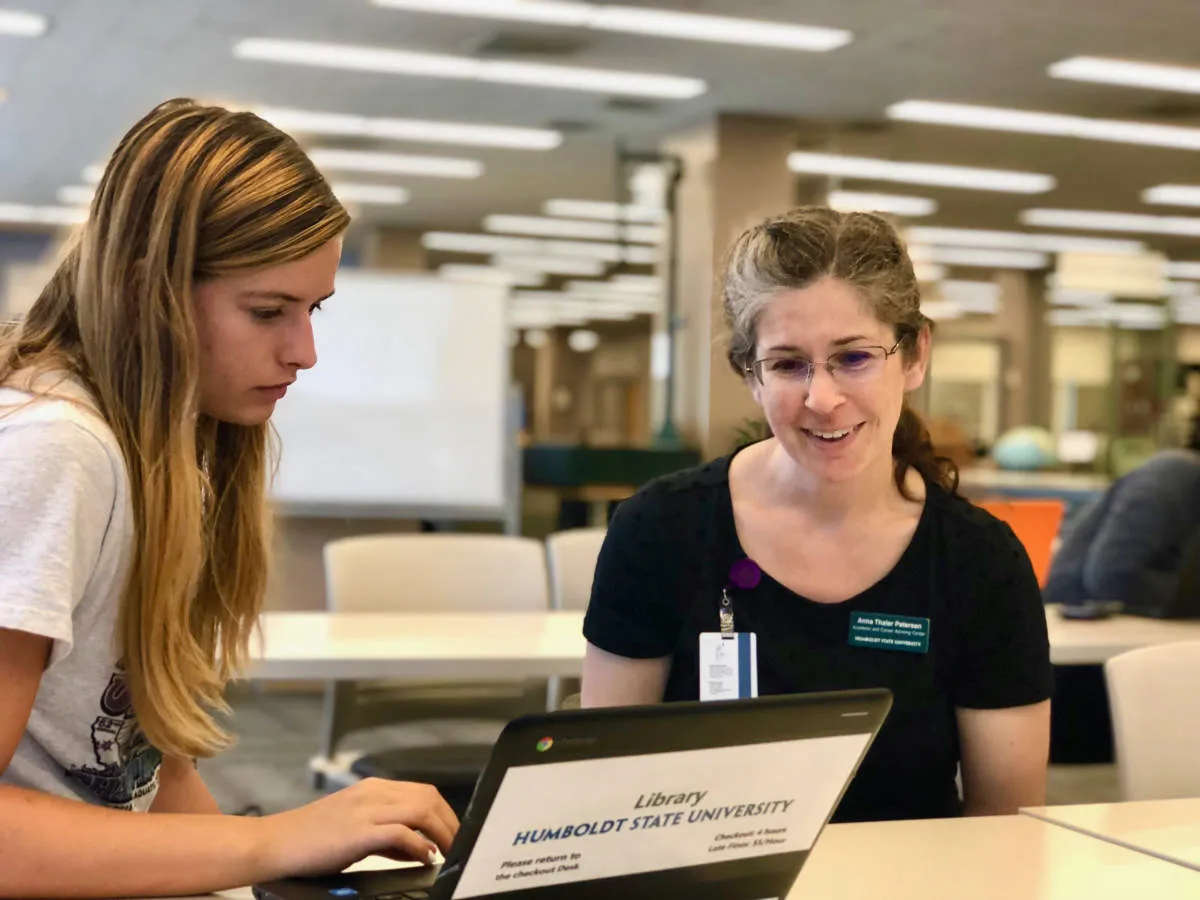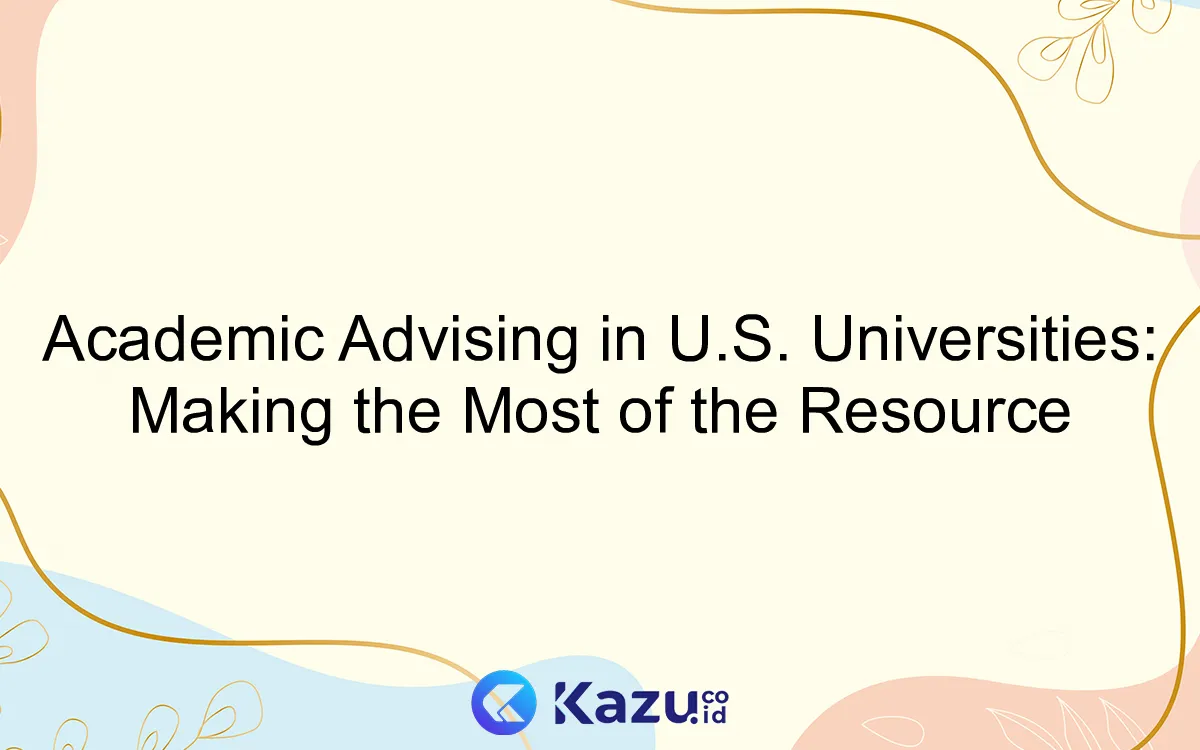Academic advising plays a crucial role in the success of students in U.S. universities. This valuable resource helps students navigate their academic journey, make informed decisions, and maximize their educational experience. In this article, we will explore the importance of academic advising and provide tips on how to make the most of this valuable resource.
Understanding the Role of Academic Advisors
Academic advising plays a crucial role in supporting students’ academic success and personal development in U.S. universities. Academic advisors are professionals who provide guidance and support to students throughout their academic journey.
One of the main responsibilities of academic advisors is to assist students in creating an appropriate academic plan based on their interests, goals, and university requirements. They help students understand degree requirements, choose the right courses, and develop long-term academic goals.
Additionally, academic advisors offer guidance in exploring different majors and career paths. They can provide information about academic programs, internships, study abroad opportunities, and other experiential learning options. By assisting students in exploring these options, advisors help them make informed decisions about their academic and career paths.
Moreover, academic advisors serve as a resource for students’ personal and social development. They can provide support and referrals for various campus resources such as tutoring services, counseling centers, and career development offices. Advisors can also help students navigate any challenges they may face, ranging from academic difficulties to personal issues.
It is important for students to actively engage with their academic advisors. By regularly meeting with their advisors, students can ensure they are on track with their academic goals and take advantage of the resources available to them. Building a relationship with an advisor can also provide students with a mentor who can offer guidance and support throughout their college journey.
In conclusion, academic advisors play a vital role in assisting students in their academic and personal development. Their guidance and support help students navigate the complexities of university life and make the most of their educational experience. By working closely with academic advisors, students can maximize their potential and achieve their academic and career goals.
Tips for Building a Productive Relationship with an Academic Advisor

Developing a successful and productive relationship with your academic advisor is crucial for navigating your academic journey in U.S. universities. Here are some tips to help you make the most of this valuable resource:
-
Establish open lines of communication:
Regularly communicate with your advisor to discuss your academic goals, course selection, and any concerns you may have. Be proactive and reach out whenever necessary.
-
Be prepared for meetings:
Prior to meeting with your advisor, make sure you have a clear agenda and come prepared with specific questions or topics you want to discuss. This will maximize the effectiveness of your time together.
-
Follow your advisor’s recommendations:
Your advisor has a wealth of experience and knowledge, so it’s important to trust their expertise. Take their suggestions seriously and consider their recommendations for course selection and other academic decisions.
-
Take responsibility for your own progress:
While your advisor is there to guide you, it’s ultimately your responsibility to stay on track with your academic requirements. Take ownership of your education and actively seek out resources and opportunities to enhance your learning.
-
Build a personal connection:
Establishing a personal rapport with your advisor can make the relationship more meaningful and productive. Share your goals, aspirations, and challenges with them, and show genuine interest in their advice and guidance.
-
Seek feedback and evaluation:
Regularly seek feedback from your advisor on your academic performance and progress. This will help you identify areas for improvement and make necessary adjustments.
Maximizing the Benefits of Academic Advising Meetings
Academic advising plays a crucial role in guiding students towards academic success in U.S. universities. These meetings with advisors provide valuable opportunities for students to enhance their overall educational experience and make the most of the resources available to them.
One key aspect of maximizing the benefits of academic advising meetings is preparation. Before meeting with an advisor, students should take the time to reflect on their academic goals, review their course requirements, and identify any questions or concerns they may have. This preparation will ensure that the meeting is productive and focused.
During the actual advising meeting, active engagement is essential. Students should come prepared with a list of specific questions to ask their advisor, seeking guidance on course selection, major requirements, academic policies, and potential extracurricular opportunities. Actively listening to the advisor’s suggestions and taking notes is also important for future reference.
Another strategy for maximizing the benefits of academic advising meetings is to establish a long-term relationship with the advisor. Regularly scheduling follow-up meetings throughout the academic year can help students receive ongoing support and personalized guidance. This relationship-building can also lead to recommendations for internships, research opportunities, or networking connections.
Lastly, utilizing additional resources alongside academic advising can further enhance the benefits. Many universities offer online tools, workshops, and support services to complement the information provided by advisors. Students should take advantage of these resources to gain a more comprehensive understanding of their academic path and potential opportunities.
In conclusion, academic advising meetings in U.S. universities are a valuable resource that students should optimize to maximize their educational experience. By preparing beforehand, actively engaging during meetings, building a long-term relationship with advisors, and utilizing additional resources, students can make the most of these meetings and navigate their academic journey with success.
Conclusion
In conclusion, academic advising serves as a valuable resource for students in U.S. universities. It provides guidance and support to help students navigate their academic journey, make informed decisions, and maximize their potential. By taking advantage of this resource, students can enhance their overall college experience and increase their chances of academic success.
